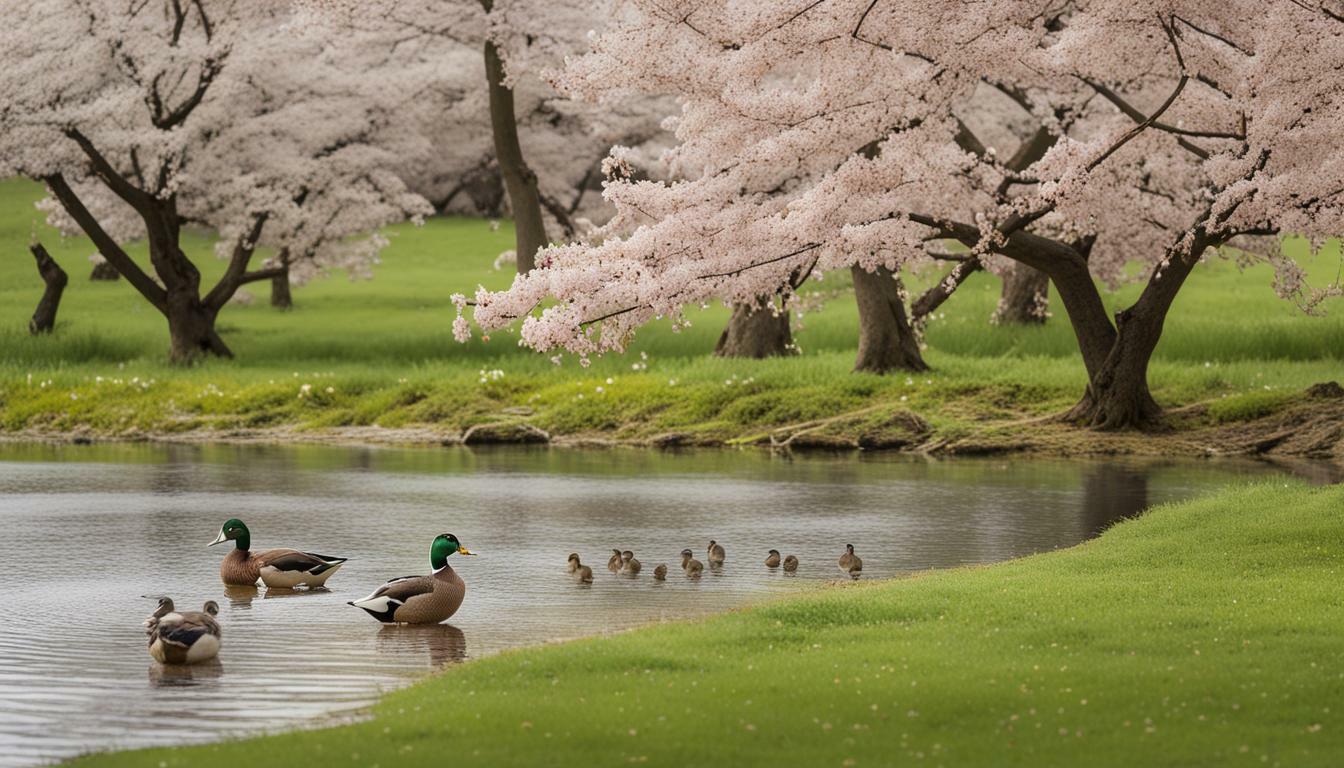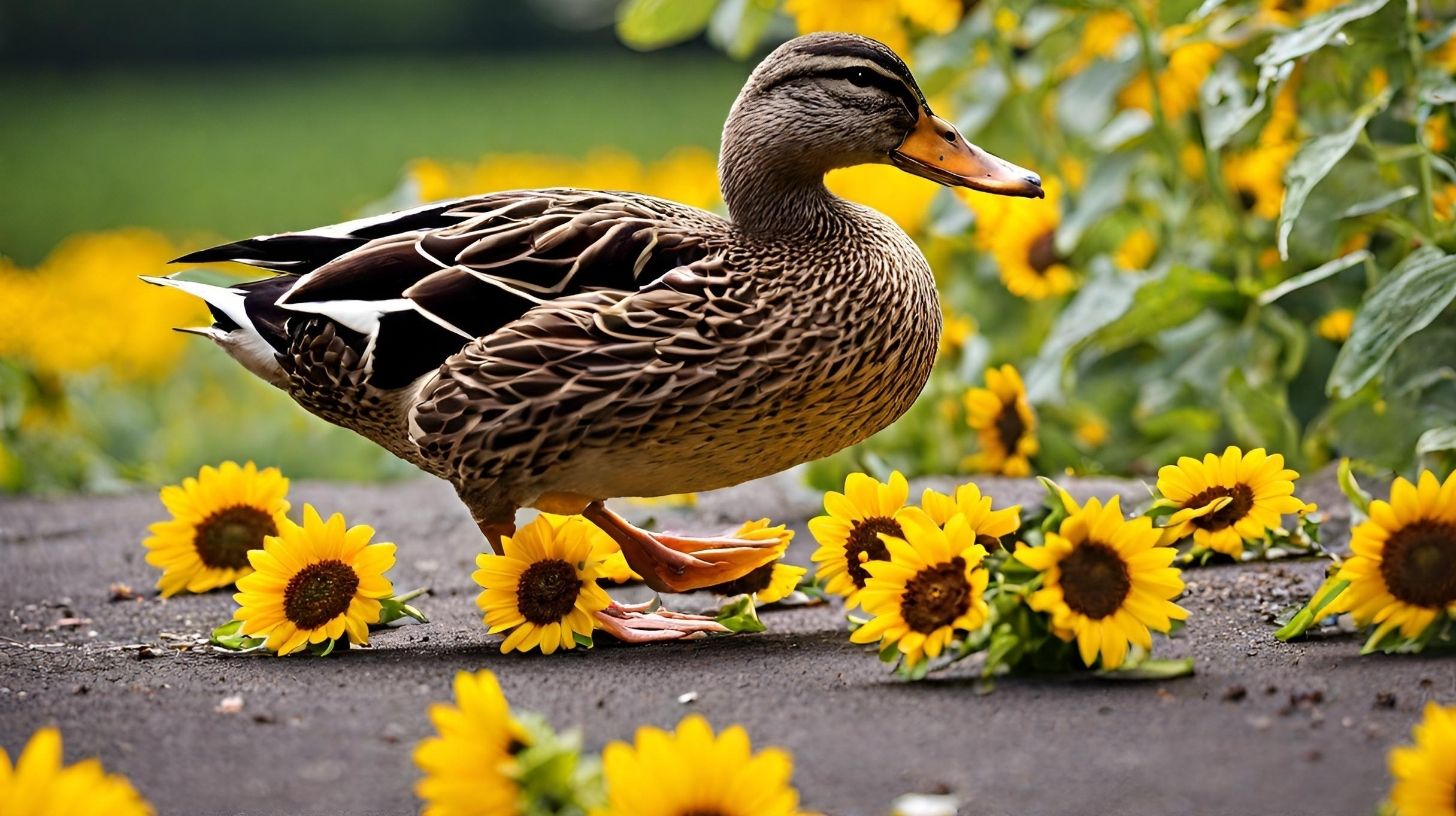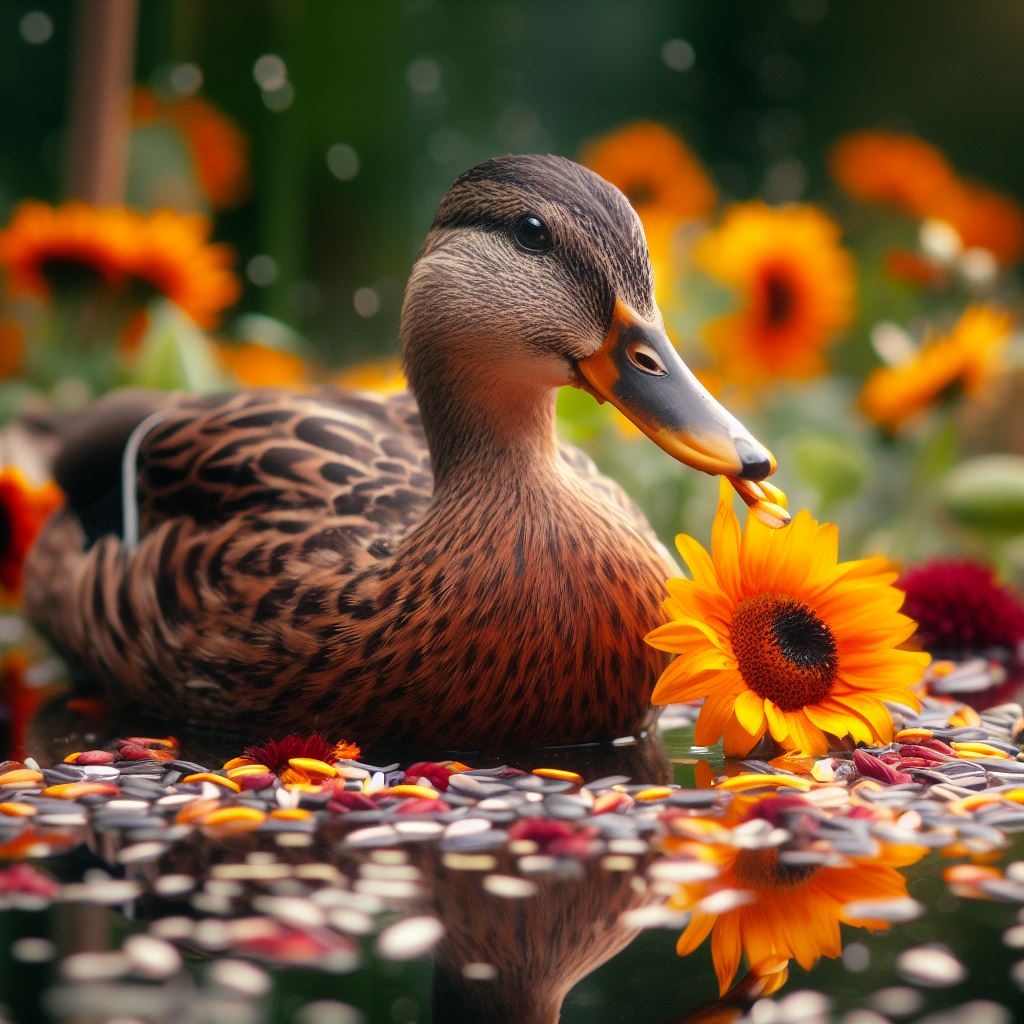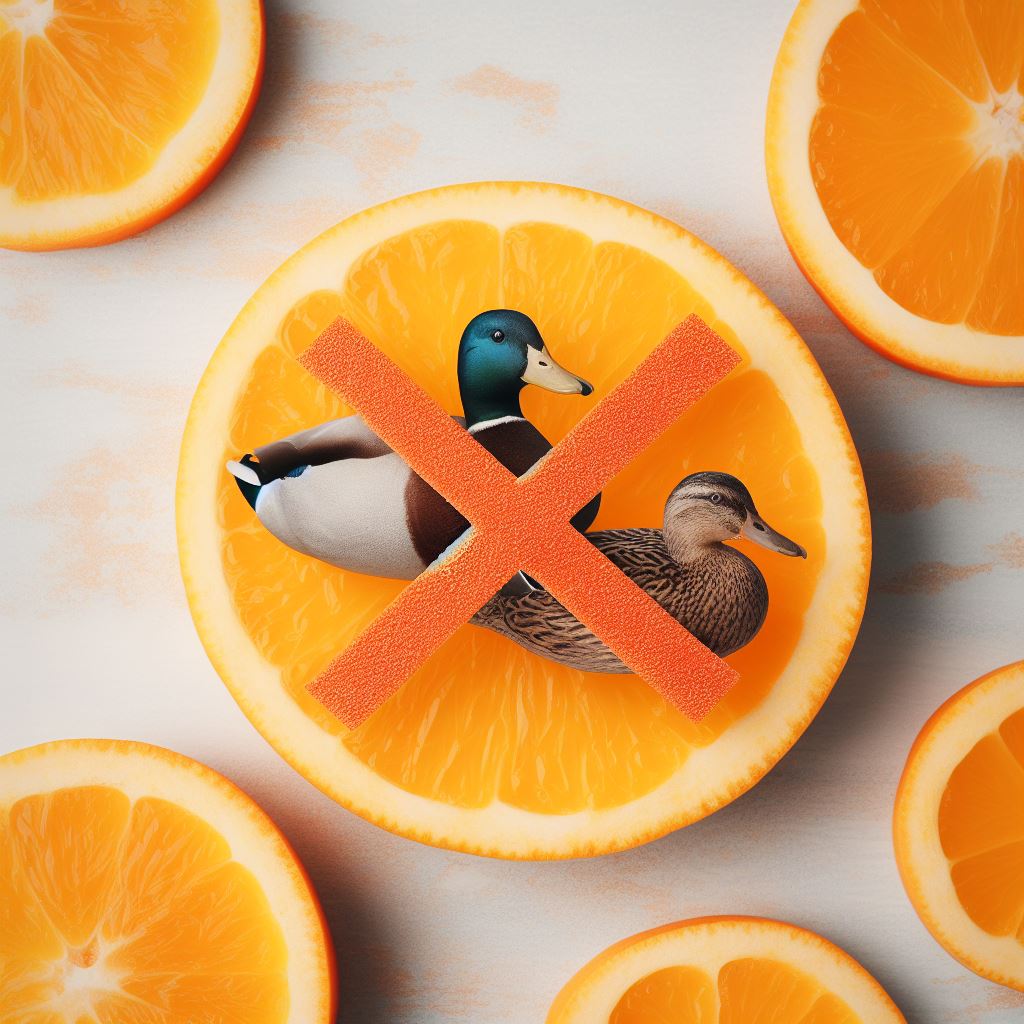Can Ducks Have Cherries? Uncovering Duck Facts

Table of content:
Cherries are a popular summer fruit that many people enjoy eating. Their sweet taste makes them a tasty snack or addition to desserts. If you have ducks, you may wonder if you can share some of this delicious fruit with them. Can ducks eat cherries? Let’s take a closer look at whether or not ducks can or should eat cherries.
Can I Feed Cherries to Ducks?
Yes, ducks can eat cherries. Both wild and domestic ducks enjoy the sweet taste of ripe cherries. The flesh is safe for them to eat.
Cherries contain vitamins, minerals, and antioxidants that are beneficial to duck health:
- Vitamin C – supports immune system function
- Vitamin A – important for vision and reproduction
- Potassium – necessary for muscles and nerves
- Anthocyanins – antioxidants with anti-inflammatory effects
The natural sugar in cherries provides ducks with quick energy. This fruit snack offers nutrition without excess calories, making it a healthy choice.
Both wild and pet ducks will readily eat cherries if given the opportunity. Wild ducks may come across fallen cherries from backyard trees. Make sure to wash store-bought cherries thoroughly before feeding them to domestic ducks.
Ducks that eat cherries benefit from the nutrition and enjoy the sweet flavor. In moderation, cherries can be part of a balanced diet for ducks.
Are Cherries Toxic to Ducks?
No, cherries themselves are not toxic to ducks. Both wild and domestic ducks can safely eat the flesh of ripe cherries without health risks.
The pits, stems, leaves, and unripe cherries contain compounds that can potentially cause illness in ducks if consumed. But the fruit itself is completely fine and nutritious.
A few important notes on safety:
- Always remove pits and stems before feeding cherries to prevent choking or internal blockage.
- Avoid letting ducks eat wilted cherry leaves or branches, as they contain cyanide compounds.
- Only feed ripe, fresh cherries. Unripe green cherries can be difficult to digest.
Provided the ducks are given pitted, ripe cherries, they will enjoy the fruit without adverse effects. Only the flesh is suitable for ducks to eat, not the pits or plant parts.
Use common sense and monitor your ducks any time you offer new foods. But in moderation, cherries are a safe, healthy treat. The nutrients benefit duck health rather than posing any toxicity risk.
What Kind of Fruit Can Ducks Eat?
Ducks can eat a variety of different fruits, both wild and domestic varieties. Fruits provide valuable vitamins, minerals, and fiber ducks need in their diet.
Some examples of fruits ducks can eat include:
- Grapes – seedless grapes cut in half to prevent choking
- Berries – strawberries, raspberries, blackberries, blueberries
- Melons – cubes of honeydew, cantaloupe, watermelon
- Apple slices – with skin removed
- Peaches/nectarines/plums – pits removed
- Pears
- Cherries – pitted
- Bananas – small pieces
- Tomatoes – rich in vitamin C
Offer fruits in moderation as part of a balanced diet. Provide a mix of fruits, don’t just feed one kind. Introduce new foods slowly to observe a duck’s reaction.
Chop larger fruits into bite-sized pieces. Remove any hard pits, stems, or rinds that could pose a choking hazard or digestion issues.
Fruits like cherries make great supplemental snacks. They give ducks natural vitamins, minerals, antioxidants, and sweet flavors they crave. Vary their fruits for diverse nutrients.
Can Ducks Eat Cherry Pits?
No, ducks should not eat cherry pits. While the fleshy fruit part is safe, the pit can be dangerous if swallowed whole.
Cherry pits contain chemicals called cyanogenic glycosides. The body converts these into hydrogen cyanide when digested. The small trace amounts in one or two pits likely won’t affect a duck. But consuming a large quantity could potentially be fatal.
Cherry pits also present a major choking risk. Their round, hard shape and size make them likely to become lodged in a duck’s throat or digestive tract. This can block their esophagus, preventing the duck from breathing or eating.
To safely feed cherries:
- Always pit the cherries before giving them to ducks.
- Closely supervise ducks to ensure they do not choke on fruit pieces.
- Avoid letting ducks forage cherries off the ground where they may ingest pits.
Taking these precautions will allow ducks to enjoy the nutritional benefits of cherries without risk from the toxic, obstructive pits. It only takes a minute to pit cherries before feeding them as a treat.
Can Baby Ducks Eat Cherries?
Yes, baby ducklings can eat pitted cherries in small amounts. The flesh of the ripe fruit provides nutritional value and sweet flavor young ducks enjoy.
Starting when a duckling is 2-3 weeks old, they can be offered small tastes of chopped fruit like cherries. Here are some tips for feeding fruit to baby ducks:
- Wait until at least 2-3 weeks old before providing fruit. Their digestive system needs time to mature.
- Chop the cherries into tiny pieces to prevent choking.
- Only offer a few bites of fruit per feeding time.
- Pit cherries and monitor closely to avoid choking hazards.
- Introduce new fruits gradually over several days.
- Fruits should complement their main diet, not replace it.
Cherries can give variety and supplemental nutrition to a growing duckling. Feed in very small quantities and always supervise closely. Remove any choking dangers like stems and pits.
With safe preparation, even young ducklings can benefit from small portions of fruit like cherries. Gradually increase the amount as they grow up healthy and strong. Monitor their droppings to ensure the fruit does not cause digestive upset.
Do Wild Ducks Eat Cherries?
Wild ducks will happily eat ripe cherries they come across. Cherries provide sugars, carbs, vitamins, minerals, and antioxidants ducks seek out.
In the wild, ducks have diverse diets consisting of:
- Aquatic plants
- Seeds
- Grains
- Algae
- Small fish and insects
- Some fruits and berries
Many types of wild ducks migrate through cherry orchard areas during summer when cherries are ripe. They will sample fallen cherries from the ground and trees. Orchard owners sometimes report duck flocks foraging in their cherry crop.
Birds like American Black Ducks and Mallards don’t discriminate when finding food. They consume what is readily available in their habitat. Sweet, ripe cherries are a nice seasonal source of carbohydrates and nutrients.
Just like domestic ducks, wild ducks should not eat the pits. But there is no toxicity risk from wild ducks consuming fallen cherry flesh. They are opportunistic omnivores that will eat almost anything they find, including fruit.
Are Cherries Good for Ducks?
Yes, when fed properly, cherries offer valuable nutrition and health benefits for ducks.
Here’s a quick recap of the nutritional value and advantages of cherries:
- Excellent source of vitamin C
- Provide vitamin A, potassium, and antioxidants
- Contain beneficial plant compounds like anthocyanins
- Natural sugars provide fast energy
- Fructose easier to digest than sucrose or glucose
- Low calorie, high nutrition fruit option
- Fruits diversify diet and palate
- Appeals to duck’s sweet flavor preference
- Wild ducks seek out ripe cherries seasonally
The bottom line is cherries can be a very healthy component of a duck’s diet when fed correctly. Just be sure to:
- Pit cherries to remove choking and toxicity risk
- Chop cherries to prevent choking
- Introduce new fruits slowly
- Feed as supplemental snacks, not primary diet
- Monitor ducks when giving any new food item
With proper precautions, fresh cherries are totally fine and beneficial for ducks to eat. Both wild and domestic ducks can enjoy this sweet, nourishing summer fruit in moderation. It provides natural plant nutrients ducks can utilize quite well.
Can Ducks Eat Dried Cherries?
Dried cherries are not recommended for ducks. The dried fruit becomes very chewy and sticky, posing a major choking risk.
Even when rehydrated in water, dried cherries do not soften adequately for safe duck consumption. Their tough, gummy texture makes them likely to lodge in the throat or esophagus.
Additionally, commercial dried cherries are often treated with sulfur dioxide as a preservative. Sulfites can potentially cause allergic reactions in sensitive animals.
For ducks, it is best to stick with fresh cherries only. Remove the pits, chop them into pieces, and monitor carefully while feeding as a snack.
Dried cherries, even if organic or unsulfured, become too hard after the dehydration process. The high risk of impaction or choking makes dried cherries an unsafe choice for ducks. Fresh cherries are a much better option to provide the benefits of cherries without harm.
Feeding Guidelines for Ducks
To safely provide cherries as an occasional treat, follow these feeding guidelines:
- Always pit cherries to remove choking/toxicity hazard
- Chop cherries into small pieces to prevent choking
- Introduce slowly with other fruits to observe reactions
- Feed as a supplemental snack, not main diet
- Rinse cherries to remove pesticides before feeding
- Monitor closely, never leave ducks unsupervised with new foods
- Adjust quantities based on duck’s weight and individual appetite
- Avoid sudden diet changes to prevent digestive upset
- Introduce fruits starting at 2-3 weeks old for baby ducks
Following these simple rules will allow you to incorporate cherries into your duck’s diet. The nutrients and taste provide benefits ducks will appreciate.
Take the pits out and chop the flesh into bite-size portions before serving. Combine with other fruits for variety. Gradually work up to a few cherries 1-2 times per week at feeding time.
Observe your duck’s droppings to ensure the fruit does not cause diarrhea. Adjust the portions or frequency if needed. By taking basic safety precautions, cherries can be a healthy treat both wild and domestic ducks enjoy.
Conclusion
Cherries can be a fun, nutritious food ducks delight in eating. Both wild and domestic ducks will readily consume ripe cherries for their sweet flavors and nutritional benefits. By pitting cherries and monitoring carefully, they can be fed as an occasional snack. Just be sure to introduce new fruits slowly and adjust amounts based on the individual duck. With proper precautions to avoid choking hazards or toxicity, cherries make a fine addition to a balanced duck diet in moderation.
Welcome. I’m Adreena Shanum, the proud owner of this website, and I am incredibly passionate about animals, especially poultry. I founded adreenapets.com as a labor of love, stemming from my desire to share my knowledge and experiences with poultry enthusiasts worldwide.




